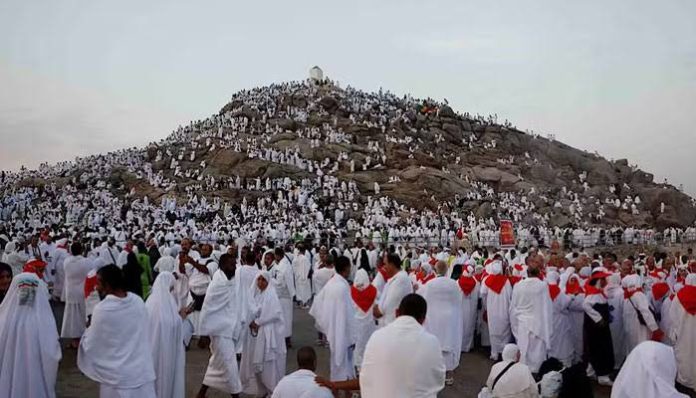The federal cabinet, in a meeting led by Prime Minister Shehbaz Sharif on Tuesday, approved Pakistan’s Hajj Policy for 2025, setting out the guidelines, costs, and quotas for pilgrims.
The Hajj quota for Pakistan has been set at 179,210, which will be divided equally between government and private sectors. This arrangement ensures that both sectors will each handle approximately 89,605 pilgrims.
The government Hajj package will cost between Rs1,065,000 and Rs1,075,000, depending on the accommodations and services chosen. This package includes various services for pilgrims, aiming to ensure that all essential needs are met during the pilgrimage.
A major change in this year’s policy is that children under the age of 12 will not be eligible to participate in Hajj. For those applying under the government quota, a computerized balloting process will take place, ensuring fairness and transparency. Within this quota, the policy reserves 1,000 seats for hardship cases and 300 seats for low-income workers registered with either the Workers Welfare Fund or the Employees Old-Age Benefits Institution, offering these individuals a chance to perform Hajj with government support.
The policy also includes the ‘Road to Makkah’ facility at Islamabad and Karachi airports to simplify travel procedures for pilgrims. Additionally, private Hajj group organizers will be required to sign service agreements with the Ministry of Religious Affairs, with strict monitoring to ensure standards are maintained.
To improve the experience of Hajj pilgrims, a new position, “Nazim,” has been created to help oversee services and assist travelers. One Nazim will be appointed for every 100 pilgrims, drawn from the welfare staff, who will focus on supporting the well-being and needs of the group.
Compensation for the families of deceased or injured pilgrims has been significantly increased in the new policy. Families of pilgrims who pass away will receive compensation of one to two million rupees, while those who sustain injuries during the pilgrimage will receive one million rupees.
Moreover, a special mobile application has been launched to provide pilgrims with easy access to essential information and assistance. Training arrangements have also been made to help them prepare for the journey.
The cabinet emphasized that priority should be given to applicants who have never performed Hajj before. This effort aims to ensure a fair opportunity for first-time pilgrims and reflects the government’s commitment to making Hajj accessible to as many people as possible.
With the approval of the 2025 Hajj Policy, Pakistan is focusing on providing better services and facilities for its pilgrims, as well as enhancing transparency and fairness in the selection process. The policy highlights the government’s dedication to ensuring a safe, affordable, and spiritually enriching experience for Pakistani pilgrims.


